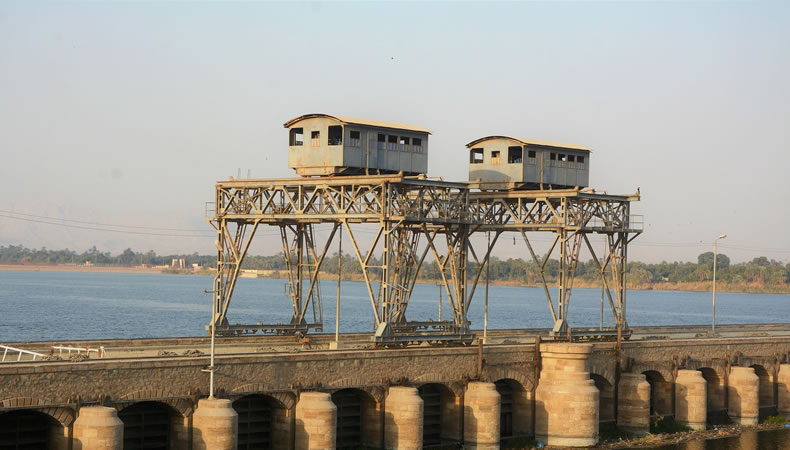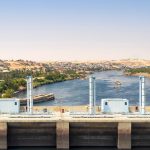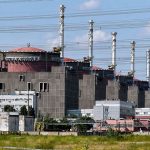The Nile Dam crisis is escalating as the world’s attention is drawn to Ukraine


Ethiopia announced the first partial commencement of power generation from the Grand Ethiopian Renaissance Dam (GERD), which is being built on the Blue Nile, the Nile’s primary tributary, on Feb. 20. Ethiopia’s unilateral efforts in topics relating to filling and running the dam have been regularly criticized by the two downstream nations, Egypt and Sudan. The initiation of electricity generating, according to the two nations, is a breach of the Declaration of Principles agreed by the three countries in 2015, which prevents the signatories from adopting unilateral actions regarding the Nile River’s water usage.
Egypt addressed a letter to the United Nations Security Council on Feb. 21, opposing Ethiopia’s decision to start operating the dam without a legally binding agreement with downstream nations overseeing the filling and operation process. Mohamed Abdel Aty, Egypt’s Minister of Irrigation, had issued the identical letter to his Ethiopian and Sudanese colleagues the day before. According to Al-Monitor, Paul Sullivan, a nonresident senior fellow at the Atlantic Council’s Global Energy Center, the Russian-Ukrainian dispute will deplete the oxygen supply. “It will be tough to persuade the authorities engaged in this to focus back on the Nile concerns,” Sullivan added. The situation (Russia’s invasion of Ukraine) comes at an inopportune time for a number of problems that needed to be resolved.”
Related Posts
Despite Ethiopia’s opposition, Cairo and Khartoum succeeded in putting the GERD issue on the UN Security Council agenda in the summer of 2021. Following that, the president of the Security Council issued a statement urging the three nations to continue their discussions under the auspices of the African Union (AU), which has subsequently attempted, but failed, to reopen negotiations. Since June 2020, talks held under the auspices of the African Union have failed to produce a tripartite agreement on the GERD’s filling and operation. Cairo and Khartoum have requested that Addis Ababa cease filling the reservoir of the project until a deal is achieved.
The tripartite discussions have been stalled since the parties met in Kinshasa, the Democratic Republic of the Congo’s capital, in early April 2021 and traded allegations of delaying the talks. In reaction to Ethiopia’s announcement of the dam’s functioning, Alaa al-Zawahiri, a member of Egypt’s negotiating committee for the GERD, informed the Egyptian Masrawy news website on Feb. 25 that his country is considering withdrawing from the talks. “Ethiopia continues to break the most basic standards of transboundary river management.” “It’s all about unilateral acts,” said Peter Riad, a water management sector expert with the German-Arab Chamber of Industry and Commerce in Cairo.
According to Riad, Ethiopians make their filling plans independent of the yearly flood level or the demands of the downstream countries. Egypt and Sudan have been unable to persuade Ethiopia to agree to a formal agreement governing the process of filling and running the dam, as well as its mode of operation during dry years with little rainfall, for more than a decade. Addis Ababa will release less water to the two downstream countries as a result of this. Egypt and Sudan also want a strong and legally enforceable system for resolving future issues, while Ethiopia wants a deal with nonbinding rules.
The start of energy generation from the GERD, according to Addisu Lashitew, a nonresident scholar at the Brookings Institution, is a significant milestone for Ethiopia, whose economy is now reeling from the consequences of high oil prices. “However, hydroelectric dams like the GERD do not consume water; they create energy by discharging water downstream,” he explained. Ethiopia claims that the $5 billion dam, which is more than 80% built and Africa’s biggest, is critical for the country’s economic development and energy supply. Egypt, on the other hand, perceives it as a severe danger to its Nile water supply, as it relies nearly totally on it to satisfy its fresh water demands.
Sudan, which believes the GERD might assist arrange the transfer of Blue Nile waters and profit from the energy generated by it, seeks assurances about its safe and appropriate operation in order to protect its own dams, especially the Roseires Dam, Sudan’s largest.Following the announcement of the dam’s start-up, Ethiopian Prime Minister Abiy Ahmed attempted to assuage Egyptian and Sudanese concerns about the consequences of this decision. “As you can see, this water will create electricity while going to Sudan and Egypt,” he stated, emphasizing that his government does not wish to do harm to anyone.
However, according to Riad, this decision implies that the GERD reservoir would lose the water it held last year in just two months and will need to be refilled in the next summer, increasing the danger of water storage in a dry or ordinary flooding year. He pointed out that, luckily, Nile flows have been above average in recent years. Ethiopia declared on July 19, 2021, that the second filling of the GERD reservoir had been completed, with a capacity of 13.5 billion cubic meters of water added to the 4.9 billion cubic meters of water held in the first filling in July 2020. “The historical data study of the Nile River reveals that there are up and down cycles every four to seven years,” Riad added. “Thus, Ethiopia should work hand in hand with Sudan and Egypt for better management and collaboration.”
While hopes of Egypt taking military action against Ethiopia over the GERD have diminished, diplomatic pronouncements between the two nations indicate that the issue might ignite at any time, with ramifications that could be felt across the already turbulent region. Ethiopia’s insistence on rethinking sharing the Nile waters complicates the stalemate talks even further. Addis Ababa wants this issue included in the GERD talks. Egypt and Sudan have said no.
In an address to the Ethiopian parliament on Feb. 22, Ethiopia’s Ahmed pushed downstream nations to join the Cooperative Framework Agreement (CFA), also known as the Entebbe Agreement, because it benefits everyone equally. Six Nile Basin nations – Ethiopia, Uganda, Kenya, Tanzania, Rwanda, and Burundi — signed the CFA in Entebbe, Uganda, in 2010, following more than a decade of discussions. Egypt and Sudan, on the other hand, have rejected the accord because it calls for the reallocation of Nile water limits stipulated in the 1959 agreement, which gave Cairo a 55.5 billion cubic meter annual quota and Khartoum an 18.5 billion cubic meter yearly quota.
The Entebbe Agreement transferred control of the Nile River from downstream to upstream countries. It made it possible to reallocate water quotas across basin countries depending on their relative contributions. According to Riccardo Fabiani, head of programs in North Africa at the International Crisis Group, there is no indication that the parties would achieve a deal in the coming months.
“The chasm that exists between these countries is as wide as it has ever been, and no attempt is being made to close it.” “It’s difficult to see how they could go back to talking and achieving a consensus if they don’t have confidence and trust in one other,” Fabiani added. According to Fabiani, the third GERD filling, scheduled for this summer, is more likely to become a flashpoint for further escalation of relations between these three nations.











